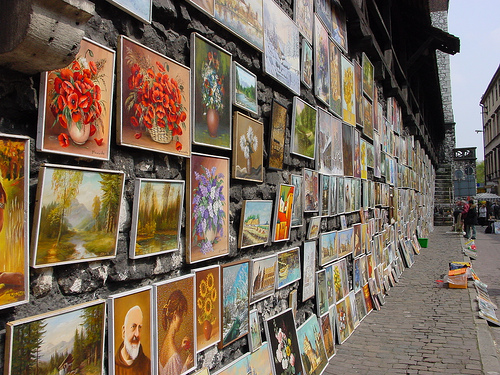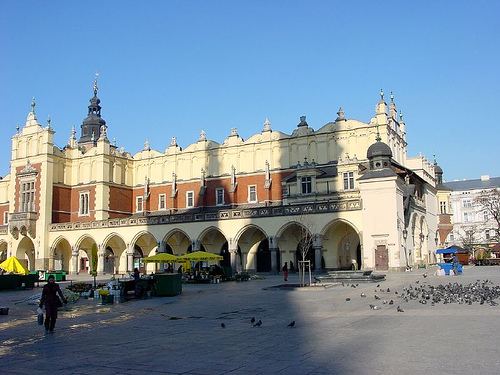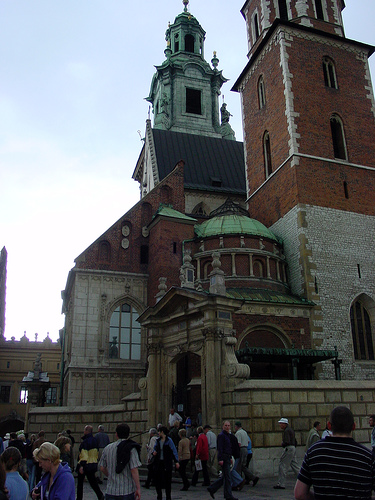For many Poles (particularly in the south), Krakow is emotional capital of Poland: the resting place of kings and the location many cultural and academic treasures.
The first time I went to Krakow I was dazzled, as many initial visitors are.

There’s a lot to wow: narrow, cobblestone alleys lined with buildings older than our nation; the vast market square, with St. Mary’s at the corner; the royal Wawel castle.


I had a mixed relationship with the city. Because of my civil status, I had to go several times to Krakow to arrange this or that document. Those were long, trying days that began with a two-hour, 5:00 a.m. bus ride to Krakow with a sprint to the appropriate office, often to find a line already formed halfway down the building. As a result, I’m somewhat embarrassed to say that I reached a point that instead of thinking, “Tomorrow I get to go to Krakow!” I began thinking, “Oh, God, tomorrow I have to go to Krakow.”
How sad that such a lovely city could become a chore.
We will be spending two days in Krakow, at the end of our time in Poland, meeting friends (K studied in Krakow) and some family, and just re-aquainting ourselves with this lovely city.